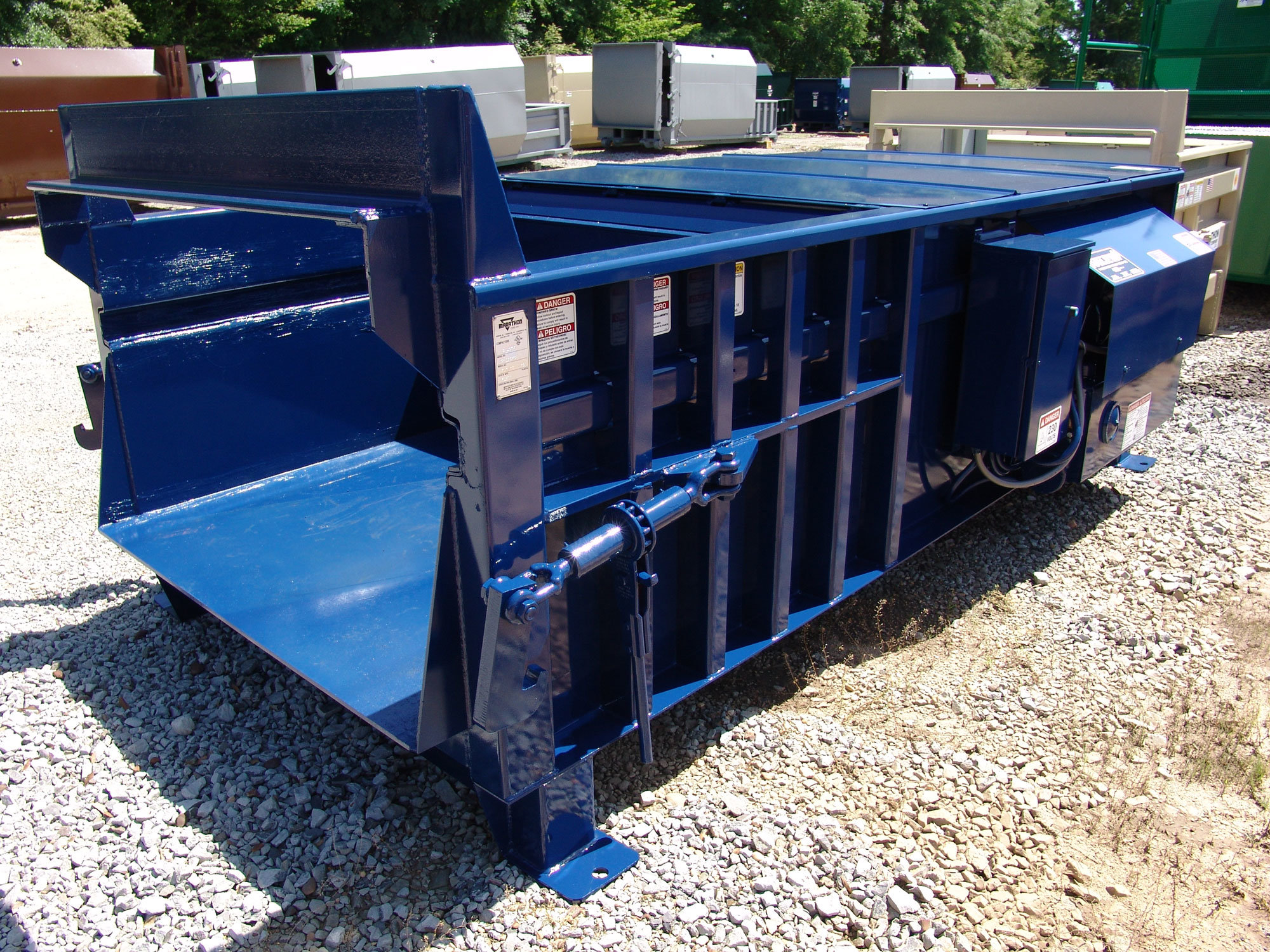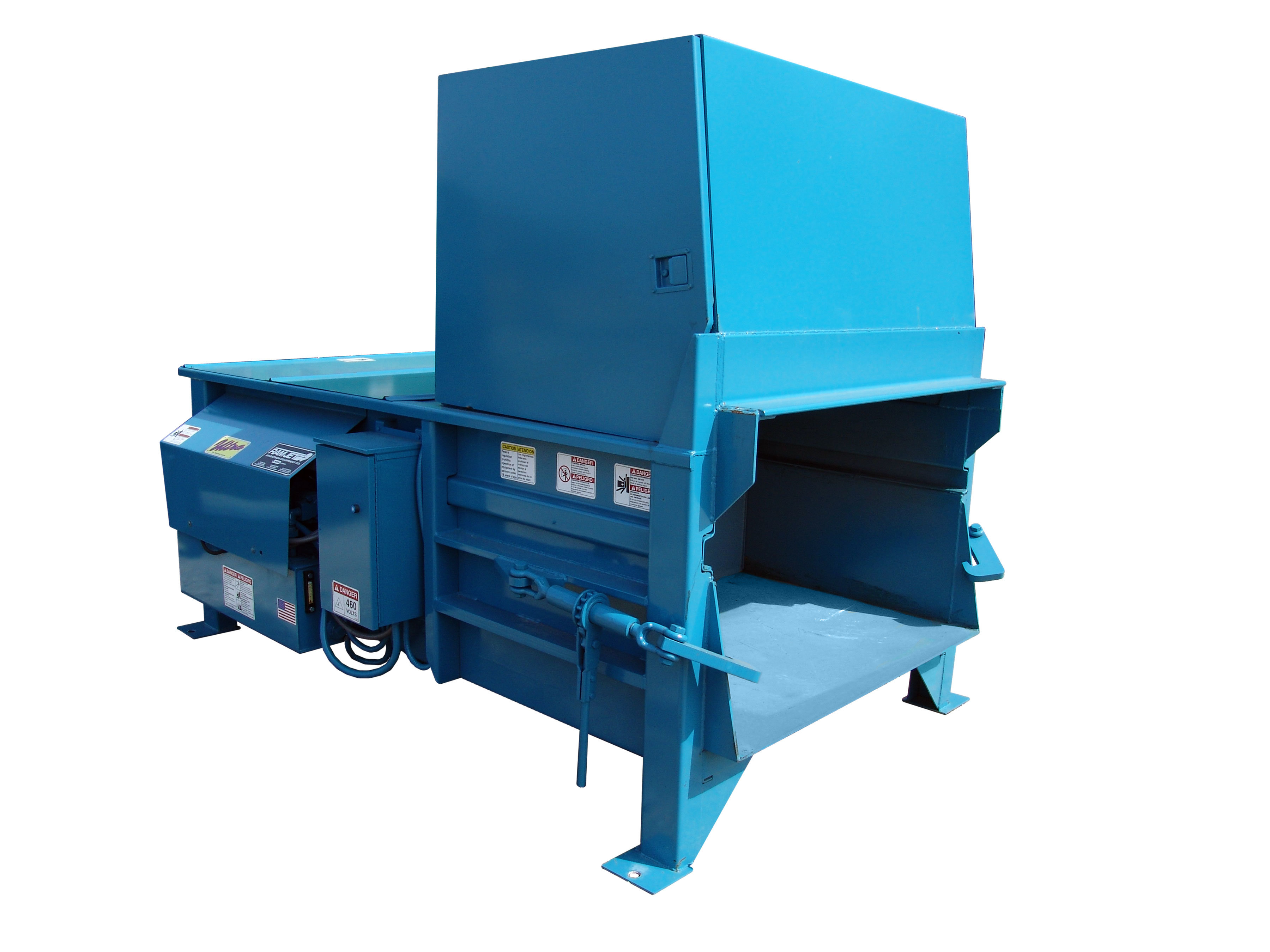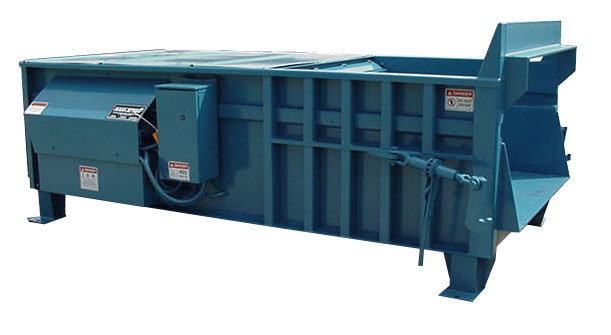The role of Commercial trash compactor equipment in green waste strategies
Wiki Article
Recognizing the Numerous Uses of Waste Equipment in the Recycling Market
The reusing sector counts greatly on specialized waste tools to maximize processing and recovery. Each tool, from shredders to balers, serves a distinct function that enhances general effectiveness. Comprehending these functions is crucial for boosting sustainability efforts. Commercial garbage compaction equipment. As modern technology breakthroughs, new developments emerge, guaranteeing to transform typical techniques. This advancement elevates crucial concerns about the future of waste monitoring and its influence on ecological preservation. What modifications exist ahead for this crucial market?The Duty of Shredders in Material Processing
Shredders play a critical role in the reusing industry by effectively refining numerous types of waste products. These machines are designed to lower big things, such as plastics, metals, and organic waste, into smaller, workable pieces. This size decrease is essential for succeeding recycling procedures, as it permits much easier handling and sorting. In enhancement to helping with recycling, shredders improve safety by decreasing the threat of injury associated with dealing with large waste products.Additionally, shredders contribute to ecological sustainability by guaranteeing that products are processed in a means that makes the most of source healing. They can manage a varied variety of materials, making them functional tools in waste administration centers. The effective operation of shredders not only enhances the recycling process but additionally increases the general efficiency of waste diversion efforts, advertising a round economy. Their significance in material processing can not be overstated, as they function as a fundamental step towards sustainable waste administration techniques.

How Balers Enhance Effectiveness in Waste Administration
Balers significantly improve efficiency in waste administration by condensing different materials right into bales, which simplifies storage space and transport. By pressing recyclables such as cardboard, plastics, and steels, balers significantly lower the quantity of waste. This compression not just maximizes room in reusing facilities but likewise decreases the number of journeys needed to transfer products, leading to reduced fuel expenses and decreased environmental influence.In addition, balers add to improved security in waste administration operations. Compact bales are easier to stack and take care of, minimizing the threat of mishaps related to loose products. The consistent dimension of bales enables much more effective packing and discharging processes, improving operations within reusing facilities. Furthermore, balers can enhance the overall quality of recyclables, as properly compressed materials are much less most likely to be polluted. Overall, balers play a vital function in optimizing waste management practices, promoting sustainability in the recycling market.
Conveyor Systems: Improving the Recycling Refine
Including sophisticated machinery like balers greatly enhances waste monitoring operations, yet the effectiveness of the recycling procedure is additionally improved via using conveyor systems. These systems play a vital role in the smooth transport of products within reusing centers. By facilitating the movement of various waste types, conveyor systems reduce hands-on handling and minimize the danger of contamination during the recycling process.Conveyor systems can be tailored to fit the one-of-a-kind formats and functional requirements of reusing centers. Their ability to operate continuously permits for a constant circulation of materials, boosting productivity and guaranteeing that arranging and refining tools gets a regular supply.
Equipped with functions like flexible speeds and automated controls, conveyor systems can enhance the flow of materials, considerably boosting general effectiveness (Commercial garbage compaction equipment). Subsequently, these systems are essential in contemporary recycling operations, adding and streamlining processes to effective waste administration
Arranging Makers: The Trick to Material Recovery
Sorting devices are necessary elements in the reusing market, significantly boosting the performance of material recovery. These their explanation makers play a critical function in the splitting up of various recyclable materials, permitting a structured process that optimizes resource removal. By utilizing advanced modern technologies, such as optical sensing units and air classifiers, sorting makers can identify and classify products based upon their weight, size, and composition. This ability guarantees that steels, plastics, and paper items are efficiently isolated, decreasing contamination and boosting the top quality of recycled output.The procedure of sorting makers considerably decreases the dependence on manual work, which can be both lengthy and prone to errors - Commercial garbage compaction equipment. Furthermore, the automation supplied by these devices accelerates the general recycling process, resulting in greater throughput Read Full Report and increased operational effectiveness. As a result, sorting equipments are vital in attaining sustainable waste management goals, allowing the recycling industry to effectively recover important products while decreasing landfill dependency

Innovations in Waste Tools for a Sustainable Future
Recent innovations in waste tools are driving the reusing sector toward an extra sustainable future. Developments such as automated sorting systems, which use artificial intelligence and machine learning, boost effectiveness by properly identifying and dividing recyclables. This leads to greater healing prices and minimized contamination. In addition, growths in compacting innovation enable much more effective transportation of products, lessening carbon footprints during transportation.In addition, developments in shredding devices improve the processing of intricate products, enabling the recycling of products that were when deemed non-recyclable. The assimilation of renewable power sources, like visit solar power, in waste handling facilities additionally adds to sustainability objectives. Additionally, innovations in naturally degradable products and waste-to-energy innovations are reshaping the landscape of waste monitoring. Jointly, these developments signify a transformative shift within the reusing industry, promoting not just environmental management however additionally financial stability for future generations.
Often Asked Inquiries
What Kinds Of Products Can Waste Devices Handle?
The kinds of products waste equipment can handle consist of plastics, metals, paper, glass, and natural waste. Each equipment kind is developed for specific products, optimizing performance and performance in sorting and processing numerous waste streams.Exactly How Usually Should Waste Devices Be Maintained?

Exist Safety Issues With Utilizing Waste Equipment?
Safety worries with making use of waste devices consist of prospective injuries from mechanical malfunctions, exposure to unsafe materials, and insufficient training. Appropriate upkeep, regular assessments, and staff member education are necessary to minimize these dangers properly in any setup.What Is the Typical Lifespan of Recycling Equipment?
The typical life expectancy of reusing tools generally ranges from 10 to 20 years, relying on elements such as use intensity, maintenance techniques, and technical innovations, which can significantly affect toughness and efficiency over time.Exactly How Is Waste Equipment Powered in Recycling Facilities?
Waste tools in recycling facilities is generally powered by electrical energy, though some equipments may utilize alternative power resources like all-natural gas or diesel. This power enables effective processing and change of materials for recycling objectives.Shredders play a crucial role in the reusing market by efficiently refining numerous types of waste products. They can take care of a diverse range of products, making them functional tools in waste monitoring centers. Balers significantly improve performance in waste monitoring by compacting different materials right into bales, which streamlines storage space and transport. The types of products waste equipment can take care of consist of plastics, steels, paper, glass, and organic waste. Security issues with utilizing waste devices include possible injuries from mechanical malfunctions, exposure to unsafe products, and inadequate training.
Report this wiki page